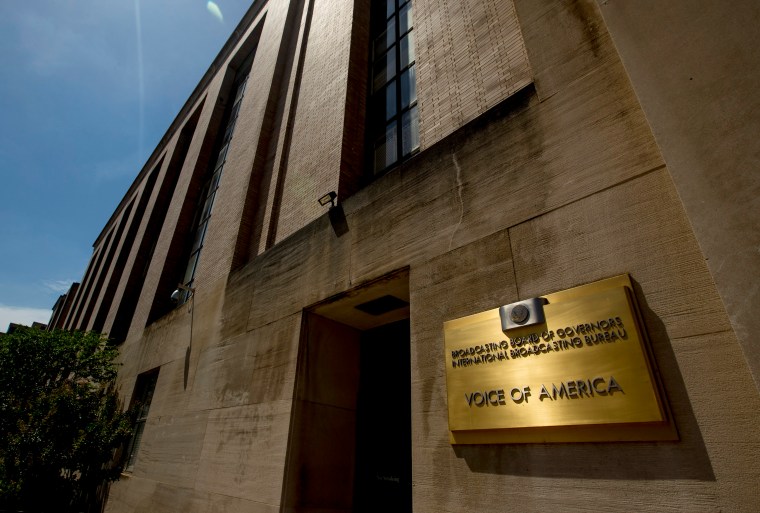Washington, D.C., October 27, 2020—The Committee to Protect Journalists today condemned a move by the head of the U.S. Agency for Global Media to eliminate a regulation designed to protect editorial independence for the agency’s networks, including Voice of America.
USAGM CEO Michael Pack said in a statement late yesterday that the regulation would be repealed to bring the U.S. Congress-funded networks into alignment with U.S. foreign policy objectives. The regulation had been written by the agency’s former board shortly before it was dissolved on Pack’s confirmation in June, NPR reported.
Voice of America distributed a fact sheet noting that the firewall protecting editorial independence derives from laws passed in 1976, 1994, and 2016. “Those laws are still in place. VOA continues to operate under the pre-June 15 firewall standards,” acting director Elez Biberaj said in a statement to staff that VOA shared with CPJ.
“By eliminating this firewall regulation, USAGM CEO Michael Pack has laid bare his aim to wield political interference at the news networks that the agency oversees,” said CPJ Program Director Carlos Martinez de la Serna in New York. “Although legal safeguards to the news networks’ independence remain in place, this move risks undermining the networks’ credibility and could further endanger the safety of its journalists.”
Since taking up the post as CEO, Pack has suspended renewing visas of foreign journalists working in the U.S. for USAGM networks; implied that spies could be among journalists at affiliate networks; and ousted several USAGM executives, as CPJ has documented.
In April, the White House issued a statement blasting VOA for its coverage of the coronavirus and accused it of promoting Chinese propaganda on the pandemic, CPJ reported at the time.
CPJ research shows that journalists for USAGM networks often put themselves at risk by reporting in highly censored countries and frequently face retribution for their reporting.
